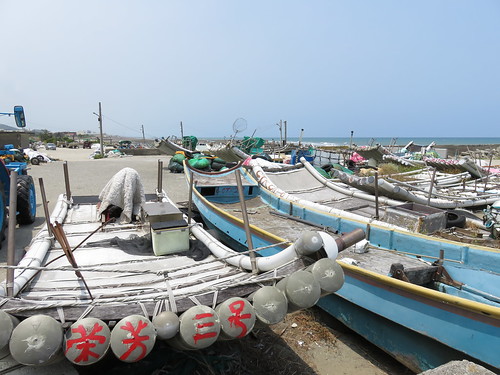Why the claw machine fad, again discussed at Ketagalan? Hmmm.... cash business, open 24 hours, no way to count customers, almost no employees, divided into many small units, easily moved, reconstructed, and disassembled, rents rather than buys... almost seems like an ideal money laundering method... Most of the time these places are empty or have few customers.
The Taiwanese Public Opinion Foundation is out there again with another poll, this one showing that people are giving up their party affiliations.
More than four in 10 Taiwanese identify themselves as independent voters, a sign of erosion in party loyalties and "partisan dealignment," according to a recent survey by the Taiwanese Public Opinion Foundation.Above is a June 2011 survey from Global Views Survey Research, showing "independents" at 29.8%, while a similar survey from Sept of 2009 has independents at 37.3%. This variance in party identification is a perfectly normal fluctuation over time. As voters become disenchanted with a party, they fail to publicly say they identify with it. What the pollster has done is measured disenchantment...which right now is vast.
....
When asked which major political party, either the Democratic Progressive Party (DPP) or the Kuomintang (KMT), they identify with, 29.5 percent of respondents chose the DPP, and 23.2 percent chose the KMT.
"Partisan de-alignment" won't occur until the KMT is gone/Taiwanified and we have a robust collection of pro-Taiwan parties that people can "de-align" to or a broad selection of politicians who are not affiliated with a party.
The pollster has an old beef with the DPP, which apparently comes out in the way he invariably frames his poll data in an anti-DPP fashion....
You said the process has increased the potential for "political novices" such as Taipei Mayor Ko Wen-je and former New Taipei Deputy Mayor Hou Yu-ih, who is the KMT's nominee for the New Taipei mayoral race in November.Hou Yu-ih, the KMT candidate for New Taipei City, was seen as having political potential early on, since he was recruited by the DPP in 2002 even before becoming National Police Administration head in 2006. Hou has been Deputy mayor since 2010 and joined the KMT a few years later. He is hardly a "political novice" -- his name has been in front of the public for two decades and he is a member of a mainstream party. The pollster didn't identify any "political novices" for the DPP or NPP, though the latter party is nothing but political novices. Wonder why....
Remember also that Ko became mayor as a result of the DPP's decision to back him when the KMT decided to commit suicide in Taipei and run Sean Lien. A contingent and peculiar set of circumstances produced him. If the KMT had run Ting Shou-chung in 2014 Ko would currently be a cantankerous former surgeon periodically quoted in the media for his irresistibly hilarious gaffes and intemperate attacks on the major parties.
The independence referendum protest continues. The alliance, including former presidents Lee and Chen, wants the legislature to amend the law so they can have a vote in Apr of 2019. The legislature will never amend the law, and the people doing this know it. Too bad they couldn't put their energy into something more immediately useful and constructive, like renewable energy, prison reform, environmental clean-up, critiquing the Forward Looking infrastructure disaster, and the like. Instead money and energy are going to displays of ideological purity.
As for former President Chen, I'd like to take a moment and once again thank the KMT for locking him up during the elections of 2014 and silencing him in the run up to the 2016 election. Looking at this referendum initiative, it is easy to see what harm Chen might have been able to do if he'd been able to speak.
Finally, I have seen it in print. The preferential foreign exchange system for people in and connected to the KMT....
While the special foreign exchange system was only available to businesses run by KMT members, other businesses often resorted to bribery and undue networking to be included in the system, which led to the rise of special foreign exchange brokers, negatively affecting the economy, people’s livelihoods and the sociopolitical climate, Kao said.Note that I am not saying that I personally ever took advantage of this preferential foreign exchange system in the late 80s and early 90s when I first showed up in Taiwan to teach English. All I am saying is that everyone has known of its existence for decades yet it seldom appears in the media or history books.
____________
Daily Links:
- Brian H with a clear explanation of the mess in Taipei over Wu Yin-ning
- KMT contends backlash from pension reforms will hurt the DPP
- The KMT Women's League continues to astonish me with how much money was going into its coffers for the strangest stuff. This one is for organizing Dragon Boat Races
- JapanFocus: The comfort women issue in Taiwan
- Tourism bureau wants your promotional videos of Taiwan's 10 islands
- US airlines are ignoring China's demand that they portray Taiwan as part of China
- Taiwan's garden in the sky ready
- JapanFocus: a highly biased and pro-China piece on the Senkakus dispute, some useful historical information on the Diaoyutai movement and fishermen.
- JapanFocus: A really excellent piece on the Bonins and how they were colonized by Austronesians... except not in the usual way. The Japanese expansion into the Pacific with its bullshit history and artificial islands is a model for the way China has grabbed the South China Sea.
- Heavy rain alert, in case you didn't know it
[Taiwan] Don't miss the comments below! And check out my blog and its sidebars for events, links to previous posts and picture posts, and scores of links to other Taiwan blogs and forums!


No comments:
Post a Comment